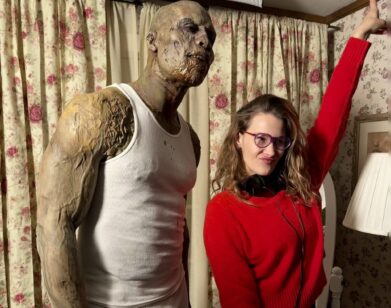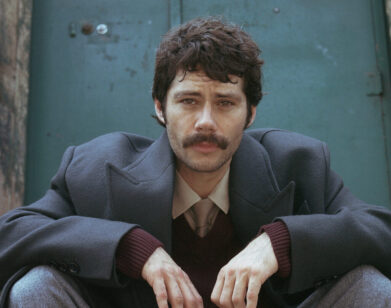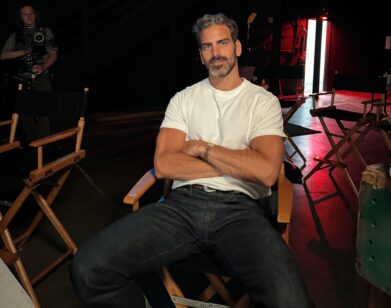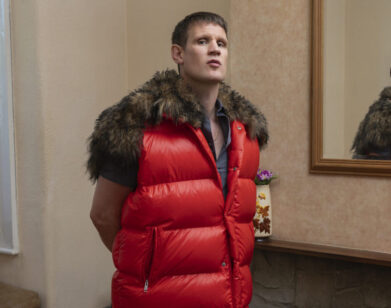A Mirage? The Tribeca Film Festival in Doha
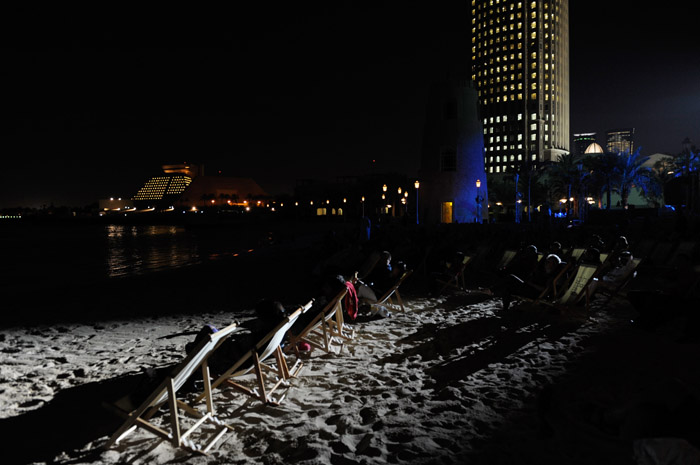
Amidst lavish hype and grandiose statements of intent, eastern and western movie stars, and industry bigwigs, a reputed 4000-strong audience of locals congregated waterside for the inauguration of the Doha Tribeca Film Festival last weekend.
Launched by Robert de Niro in depressed post-9/11 Lower Manhattan in 2002, Tribeca came to Doha largely thanks to the daughter of Qatar’s Emir, Sheikha Mayassa bint Hamad Al Thani, who interned for Festival director Jane Rosenthal at the Tribeca offices in New York three years ago. She put the idea of a satellite event to Rosenthal, who recognized the benefits of bringing the Tribeca brand to the culturally-aspiring state. Dubai, the city-state on the coast, has presented an international film festival annually since 2004, and hosts galleries, theatres and two major art fairs. Neighboring Abu Dhabi, the staid elder brother to Dubai, launched its own film festival two years ago, and is debuting its own major art fair within weeks—not to mention the prospects of franchises of the Louvre and the Guggenheim. (PHOTO: MICHAEL BUCKNER; THE MUSEUM OF ISLAMIC ART)
At a luncheon Thursday afternoon saw downplay any cynical mutterings of store-bought big Western brand names. “We wanted to incorporate Qataris in the festival so nobody here would think we’re simply imposing a festival,” she said, going on to detail an extensive schedule of panel discussions, debates, cinema masterclasses, competitions, and 32 feature, documentary and short movies too, over four days.
That evening, crowds gathered around the Doha waterfront’s Museum of Islamic Art, I.M. Pei’s serene structure removed from the skyscrapers inland. This being the Middle East, a traditional red carpet simply wouldn’t do. Neither, it seemed, would an evening made up of human guests. Along the glowing red LED platform clunked a giant robot who was, according to the whispers in the crowd, called Titan. A few children seemed to recognize this Titan, and cheered him on fondly. The rest of the crowd whooped and hollered politely; one baffled-looking gent near me distractedly fingered his prayer beads. Miuccia Prada moved along, clad in a black, spiky creation before Martin Scorsese diminutive trotted in. Egyptian stars, including Youssra and Amr Wakeb provoked momentary ripples of mild hysteria from the Arab contingent. (PHOTO: ANDREW H. WALKER; ROBERT DE NIRO IN DOHA)
Then there was Sir Ben Kingsley, deploying a graceful red-carpet technique that had the flintiest of bystanders melting in simpering awe. “Ben!’ “Ben!” shouted a group of Qatari girls, giggling and waving cellphone cameras in his direction. The eminent thesp moved smartly across the red carpet to say hello. The girls dissolved into a flutter of gasps and simpers. He was asking for local recommendations when a group of Indian photographers mistake him for X-Men‘s Patrick Stewart. “I’m the other one!” he called over. “Gandhi.” Baffled silence, momentarily. “Gandhi! Gandhi! Over here!”
Here in his capacity as one of the board of directors of the Tribeca Film Institute, Jeffrey Wright was in a reflective mood. “I feel deeply conflicted about my craft at the moment,” he told a group of journalists. “I feel very safe in the Middle East and think that there are a lot of stories from this part of the world waiting to be told.” Cellphone camera clicks were his appreciative response.
The opening night screening was to be Mira “Monsoon Wedding” Nair’s biopic of doomed aviator Amelia Earhart, with Oscar-magnet Hilary Swank in the title role. A gigantic outdoor screen had been erected and 5,000 deckchairs were set out. DTFF executive director Amanda Palmer appeared on-stage to welcome the crowd. “This is the most beautiful thing we have seen for a very long time,” she said, presumably referring to the audience. In retrospect, Nair’s pre-screening comment that the festival should inspire members of the audience to “make [their] own stories” might have been taken to heart during the screening by more than a few members of the audience.
While skewed westward, the film slate managed some interesting programming from the Middle East, including a closing night screening of Ruba Nadda’s Cairo Time. Other regional highlights included Team Qatar, a charming piece that following a Qatari school’s quest to make it to the World School’s Debating Championship in Washington DC—for which director Liz Mermin won the $50,000 Best Festival Film prize. (PHOTO: MICHAEL BUCKNER; MONSOON WEDDING SCREENING AT THE FOUR SEASONS DOHA)
The closing awards ceremony featured Martin Scorsese handing out gongs to young Arab filmmakers. Robert De Niro, for his part, looked on proudly: “The future of the festival in Doha is bright.” The audience showed no such reserve, and all but rushed him. After signing autographs, De Niro moved for his ride home. One Arab gentleman in a wheelchair smilingly blocked his path to his getaway vehicle, in order to grab a photo op. De Niro bent over and smiled, and the cameras flashed. Then he clambered into his vehicle and disappeared into the heat of the Arabian night.

